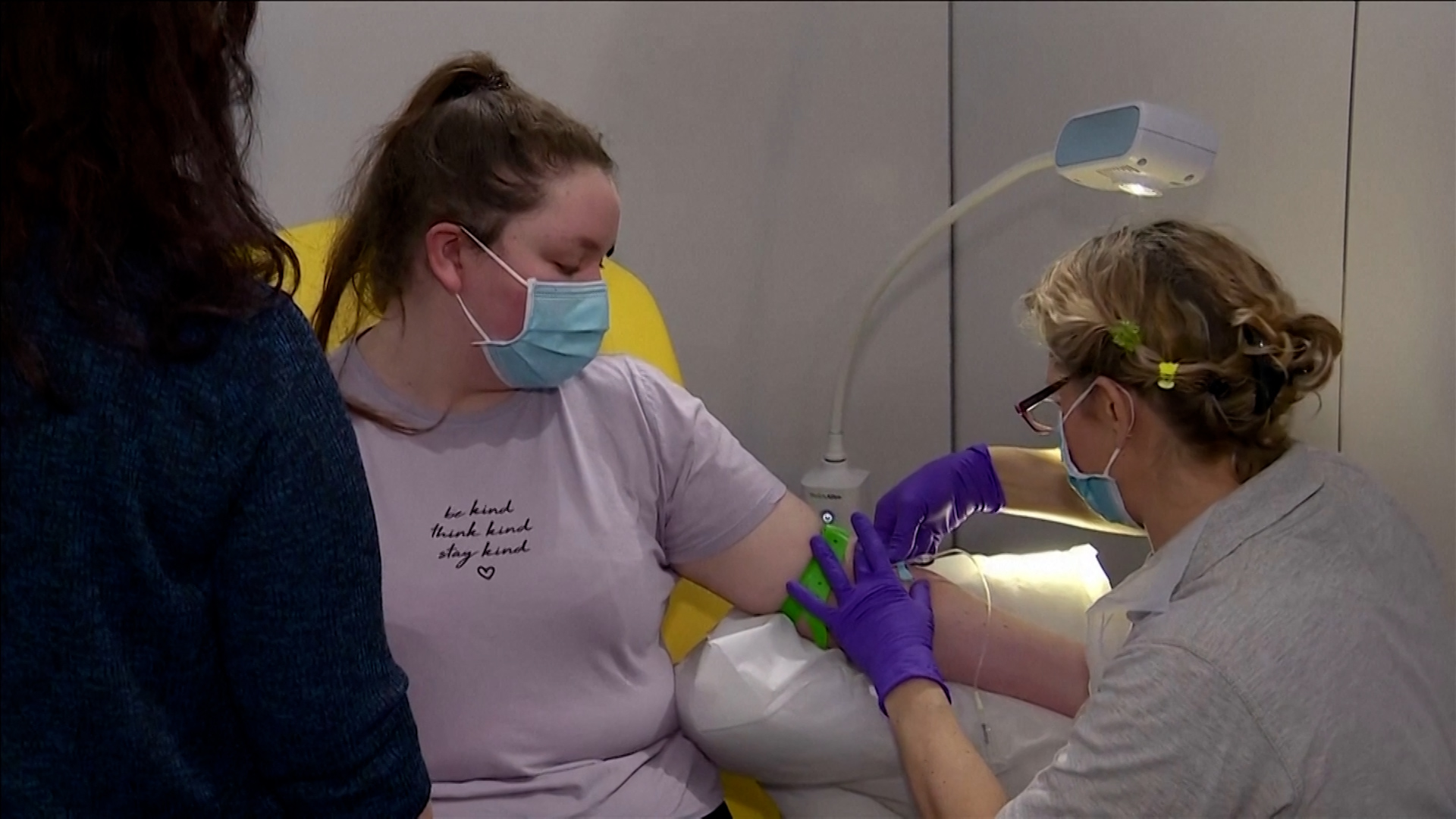02:23

The R (reproduction) rate of the COVID-19 virus is on its way down across England.
The latest study from Imperial College London has found infections have dropped by two-thirds across the country. The greatest fall has been in London and the southeast. Infection rates have not dropped as dramatically in the north.
The React study puts the R rate at 0.72. It has to be below 1 for the rate of infection to start shrinking.
It's now estimated that one in 200 people is carrying the virus.
The highest infection rates are now in the five to 12 age group and and those people aged between 18 and 24.
Researchers at Imperial College say, while the results are encouraging, the prevalence of the disease is still as high as it was in September last year and hospital admissions are at the level they were during the first wave of the coronavirus in April.
Speaking on BBC Radio, Paul Elliot said it is too early to assess the impact of the vaccination program on infection rates and community transmission of the virus.
On Wednesday, UK Prime Minister Boris Johnson said there will be no rush out of lockdown and it will be a cautious approach driven by the data available.
This week, a British company has received ethical approval to undertake the world's first human vaccine challenge for the virus. Young, healthy adult volunteers will be injected with COVID-19 and given a vaccine to test its efficacy.
Cathal Friel, the CEO and co-founder of Open Orphan, the company that is conducting the challenge trial, said: "The amount of COVID [injected] is a minuscule amount, so small that many of the volunteers won't even know they're being infected."
Around 7,000 people have volunteered to be involved so far. Up to 90 will be chosen between the ages of 18 and 30.
Researchers will also be able to monitor how the disease progresses every minute from the first moment of infection. The volunteers will be kept in a quarantine center at London's Royal Free hospital.
The hope is that it will help unlock many of the unknowns about COVID-19 and ideally help scientists develop treatments for the future.

